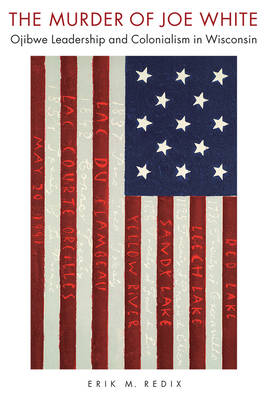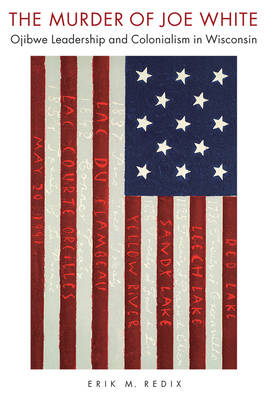
- Afhalen na 1 uur in een winkel met voorraad
- Gratis thuislevering in België vanaf € 30
- Ruim aanbod met 7 miljoen producten
- Afhalen na 1 uur in een winkel met voorraad
- Gratis thuislevering in België vanaf € 30
- Ruim aanbod met 7 miljoen producten
Zoeken
€ 48,45
+ 96 punten
Omschrijving
In 1894 Wisconsin game wardens Horace Martin and Josiah Hicks were dispatched to arrest Joe White, an Ojibwe ogimaa (chief), for hunting deer out of season and off-reservation. Martin and Hicks found White and made an effort to arrest him. When White showed reluctance to go with the wardens, they started beating him; he attempted to flee, and the wardens shot him in the back, fatally wounding him. Both Martin and Hicks were charged with manslaughter in local county court, and they were tried by an all-white jury. A gripping historical study, The Murder of Joe White contextualizes this event within decades of struggle of White's community at Rice Lake to resist removal to the Lac Courte Oreilles Reservation, created in 1854 at the Treaty of La Pointe. While many studies portray American colonialism as defined by federal policy, The Murder of Joe White seeks a much broader understanding of colonialism, including the complex role of state and local governments as well as corporations. All of these facets of American colonialism shaped the events that led to the death of Joe White and the struggle of the Ojibwe to resist removal to the reservation.
Specificaties
Betrokkenen
- Auteur(s):
- Uitgeverij:
Inhoud
- Aantal bladzijden:
- 294
- Taal:
- Engels
- Reeks:
Eigenschappen
- Productcode (EAN):
- 9781611861457
- Verschijningsdatum:
- 1/09/2014
- Uitvoering:
- Paperback
- Formaat:
- Trade paperback (VS)
- Afmetingen:
- 152 mm x 226 mm
- Gewicht:
- 408 g

Alleen bij Standaard Boekhandel
+ 96 punten op je klantenkaart van Standaard Boekhandel
Beoordelingen
We publiceren alleen reviews die voldoen aan de voorwaarden voor reviews. Bekijk onze voorwaarden voor reviews.







